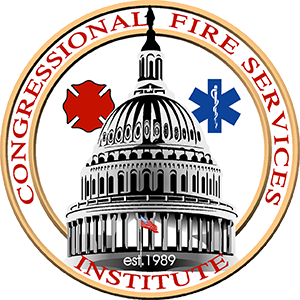Fiscal Year 2017 Omnibus Spending Bill Released
(May 1, 2017) – In the early morning hours of Monday, May 1st, Congressional leaders introduced H.R. 244, the Consolidated Appropriations Act of 2017, a $1.07 trillion spending bill to fund the federal government for the remainder of the current fiscal year. Currently, the federal government is operating under a continuing resolution, which expires on Friday, May 5th. Congress will need to approve the omnibus spending measure before the Friday deadline to avoid a government shutdown.
Included in the spending package is funding for several programs of significance to the nation’s fire and emergency services. The Assistance to Firefighters (AFG) and Staffing for Adequate Fire and Emergency Response (SAFER) grant programs are funded at $690 million, split evenly between the two programs. The State Homeland Security Grant Program is funded at $467 million. This is the same funding level Congress approved for these three programs in Fiscal Year 2016. Additionally, the United States Fire Administration (USFA) is funded at $44 million, the same level as the previous fiscal year.
Several programs receive a slight increase in funding under the measure. The Urban Area Security Initiative (UASI) is funded at $605 million, an increase of $5 million compared to Fiscal Year 2016. The bill also provides $38,200,000 for the Urban Search and Rescue Response System (USAR), an increase of $3.1 million. The Volunteer Fire Assistance (VFA) program is funded at $15 million, an increase of $2 million from Fiscal Year 2016.
“These figures contained in the omnibus measure affirm the importance of maintaining communications with our elected leaders,” said Bill Webb, Executive Director of the Congressional Fire Services Institute. “Our hope is that the House and Senate will move swiftly on final passage so that these funds can be appropriated to the aforementioned programs that continue providing support to our nation’s fire departments. We appreciate the commitment the House and Senate Appropriations Committees, as well as the leadership of the Congressional Fire Services Caucus, have given to our nation’s first responders and we look forward to working with them as the complete work on funding the federal government for the current fiscal year and we turn our focus to the Fiscal Year 2018 spending bills.”
The House could potentially vote on the omnibus spending package as earlier as Wednesday, May 3rd. If approved, the measure would then be sent to the Senate. CFSI will continue to provide updates throughout the appropriations process.
